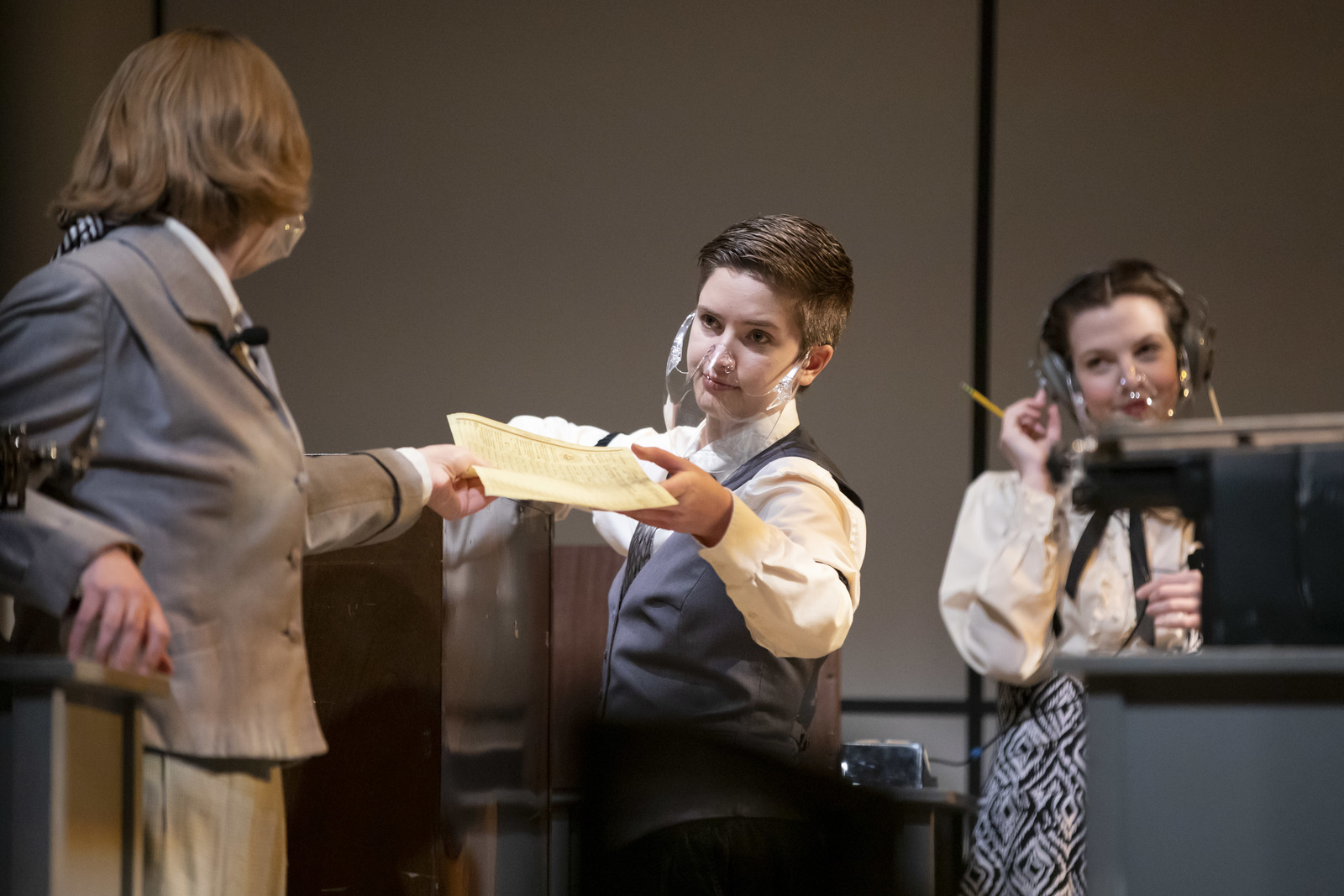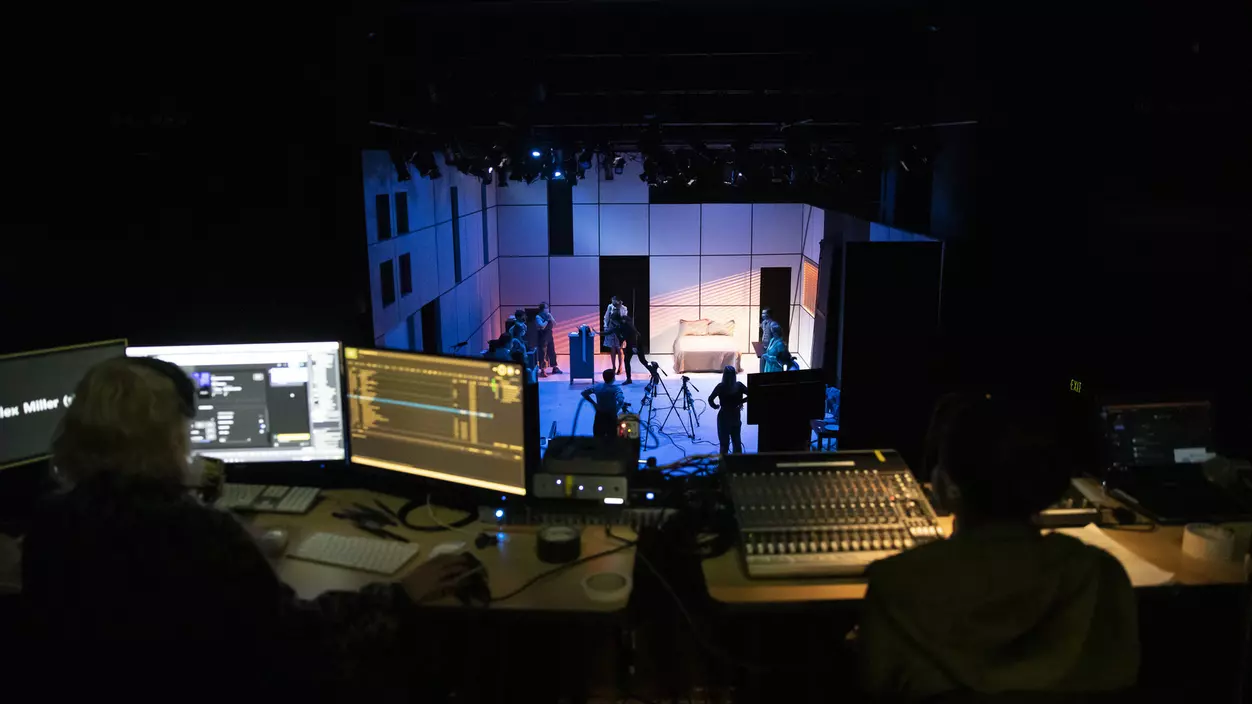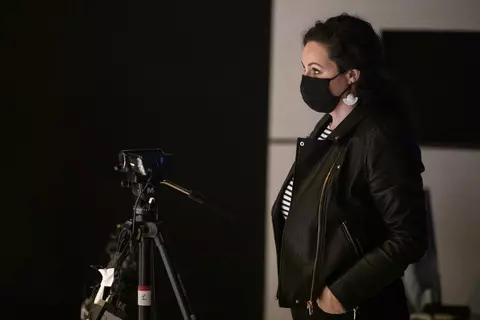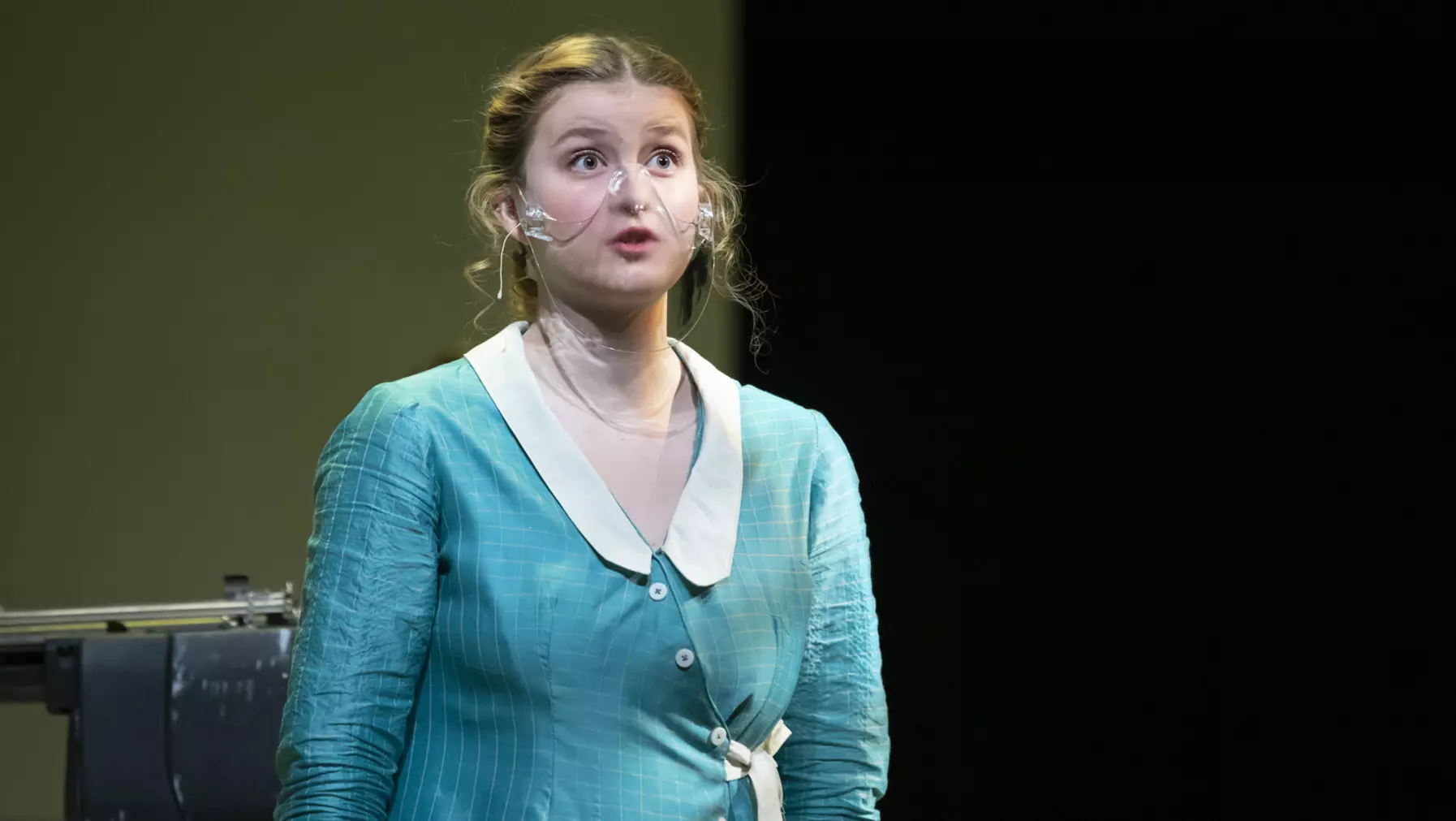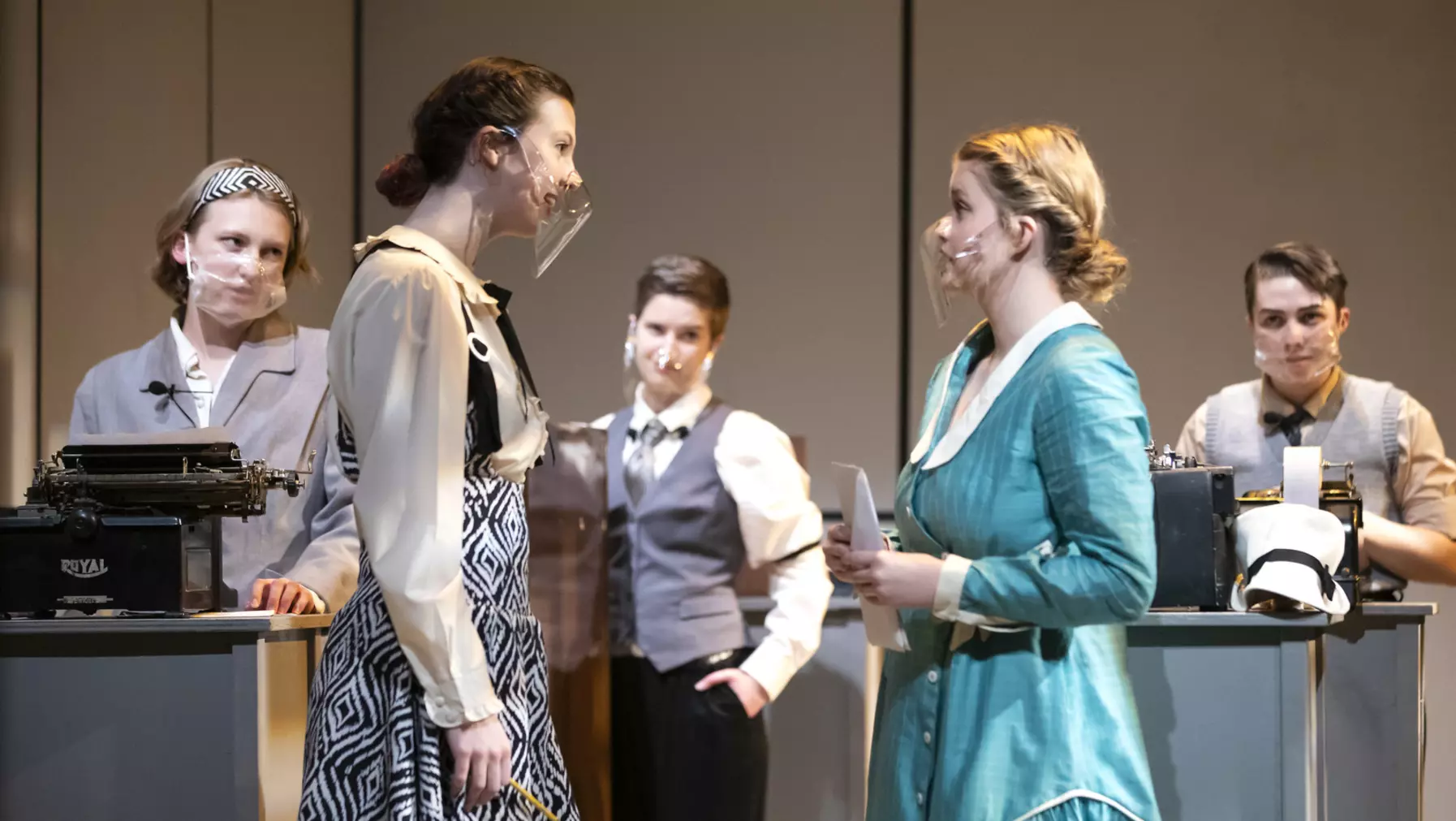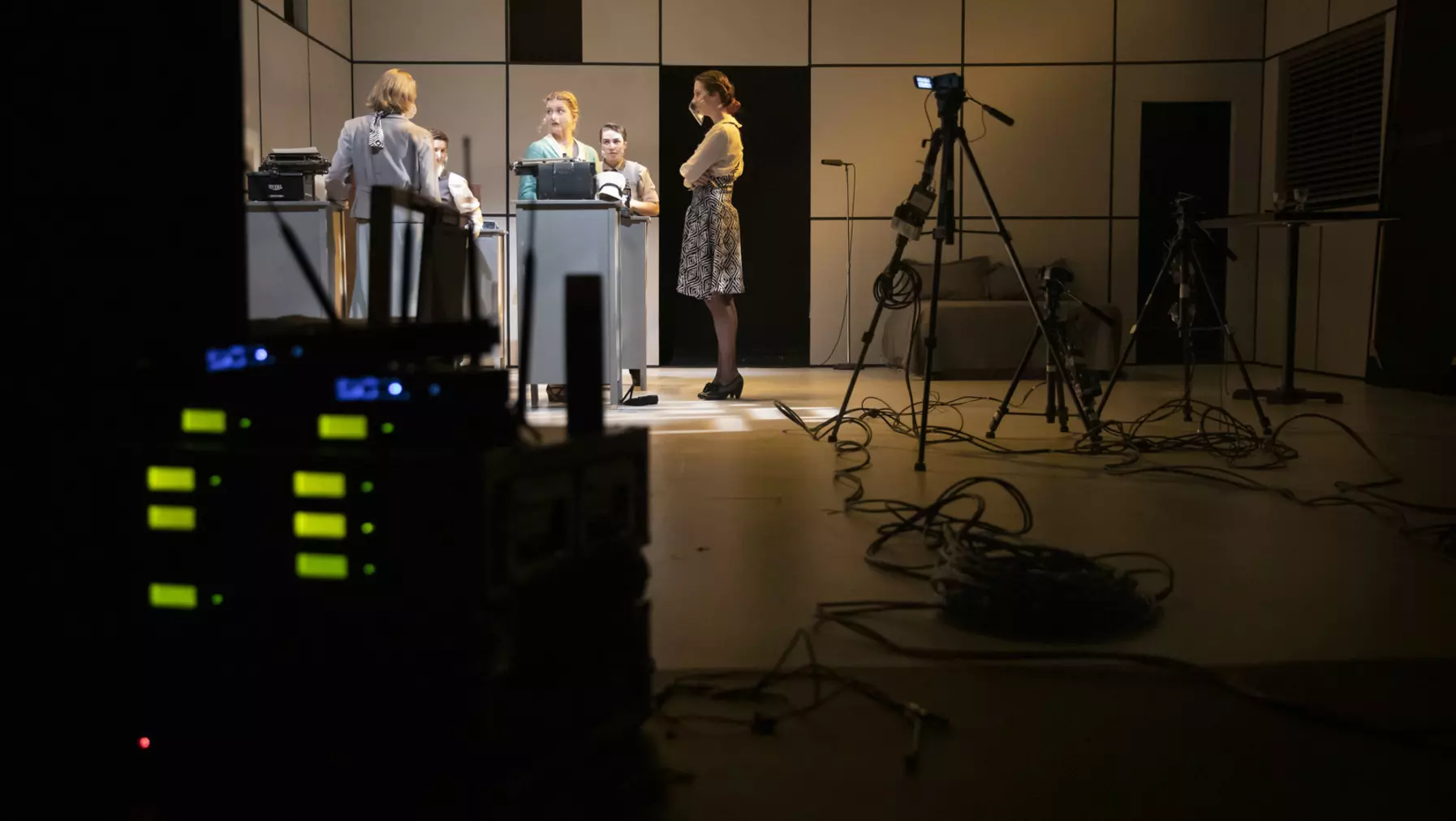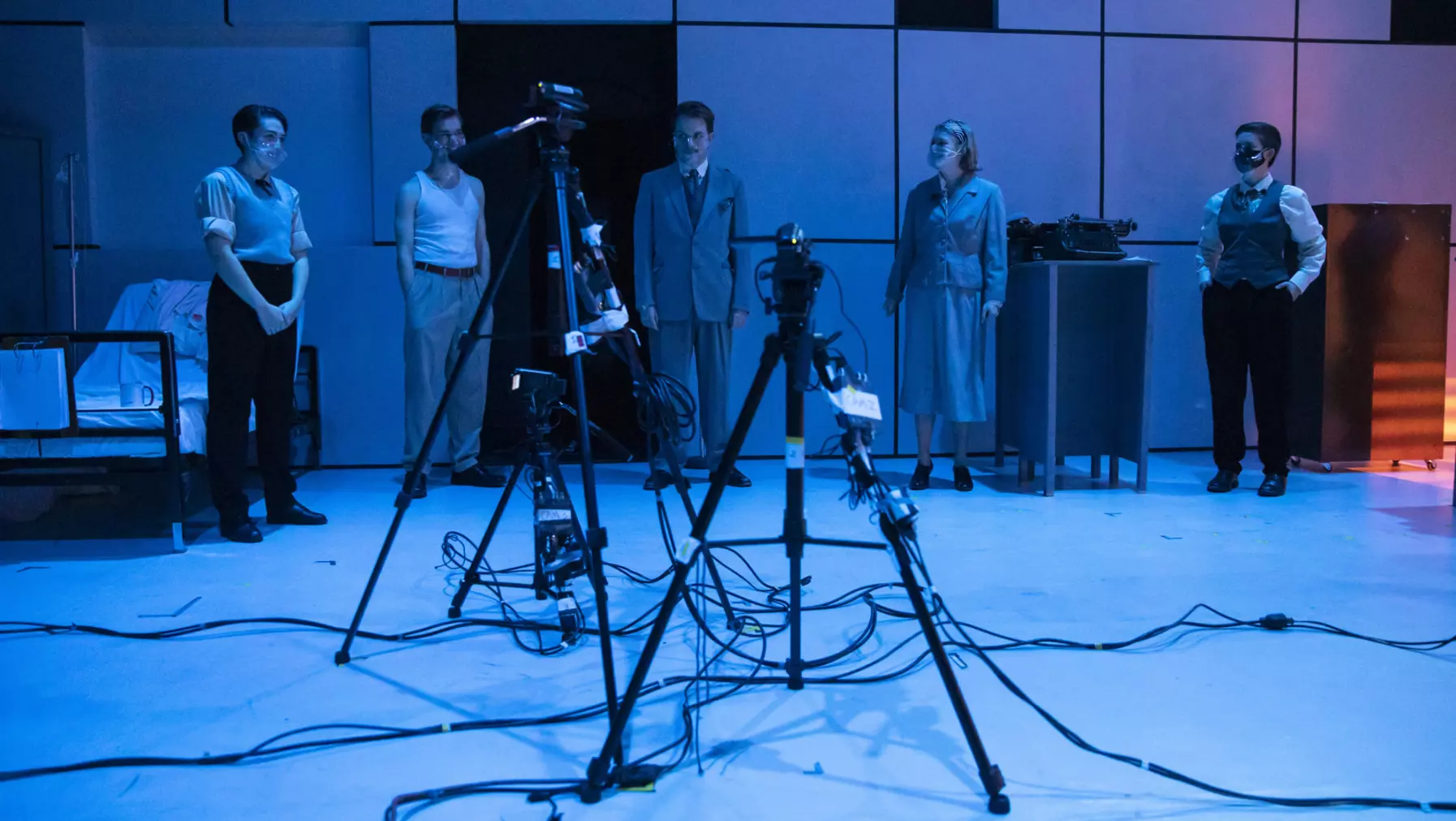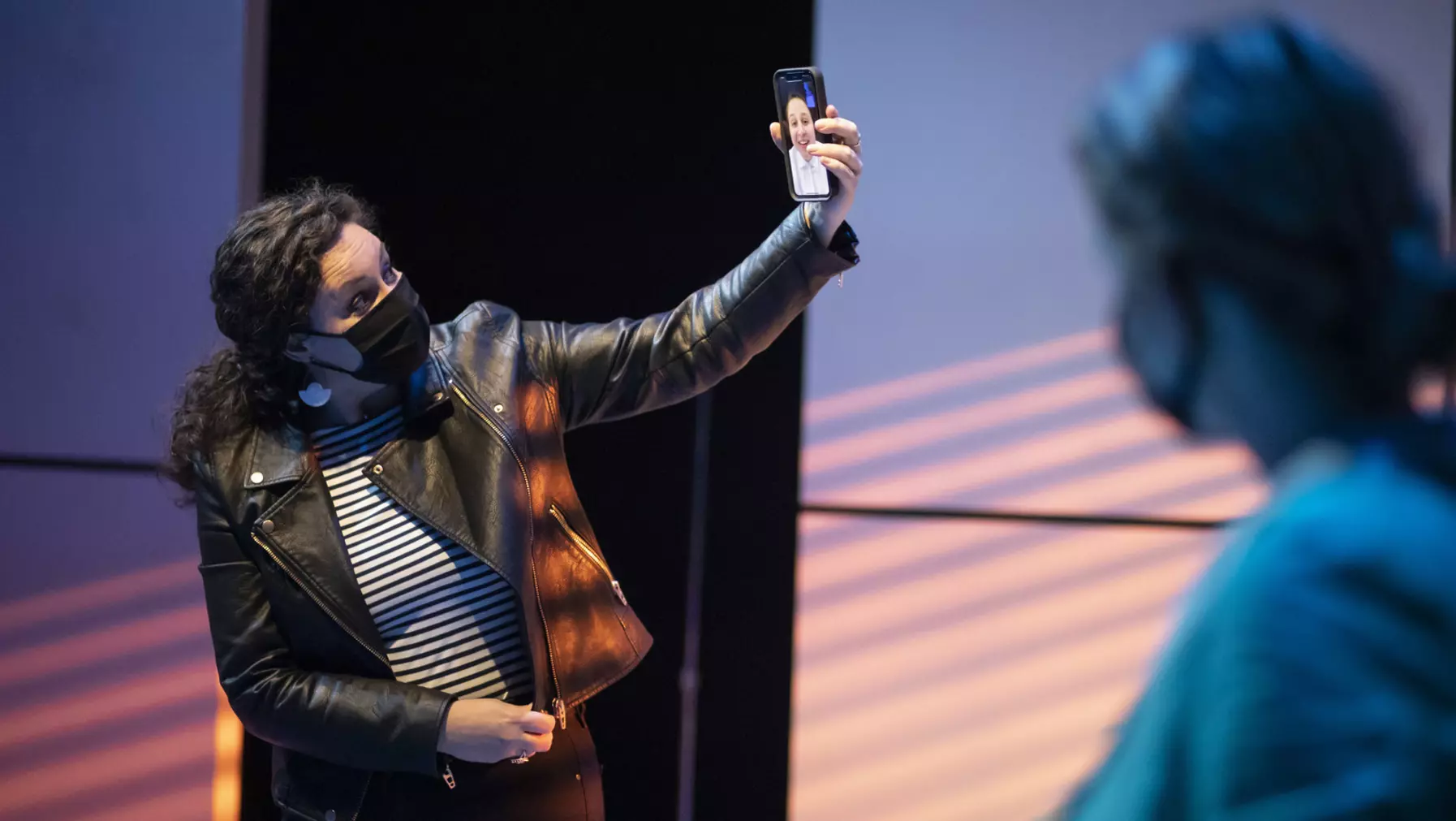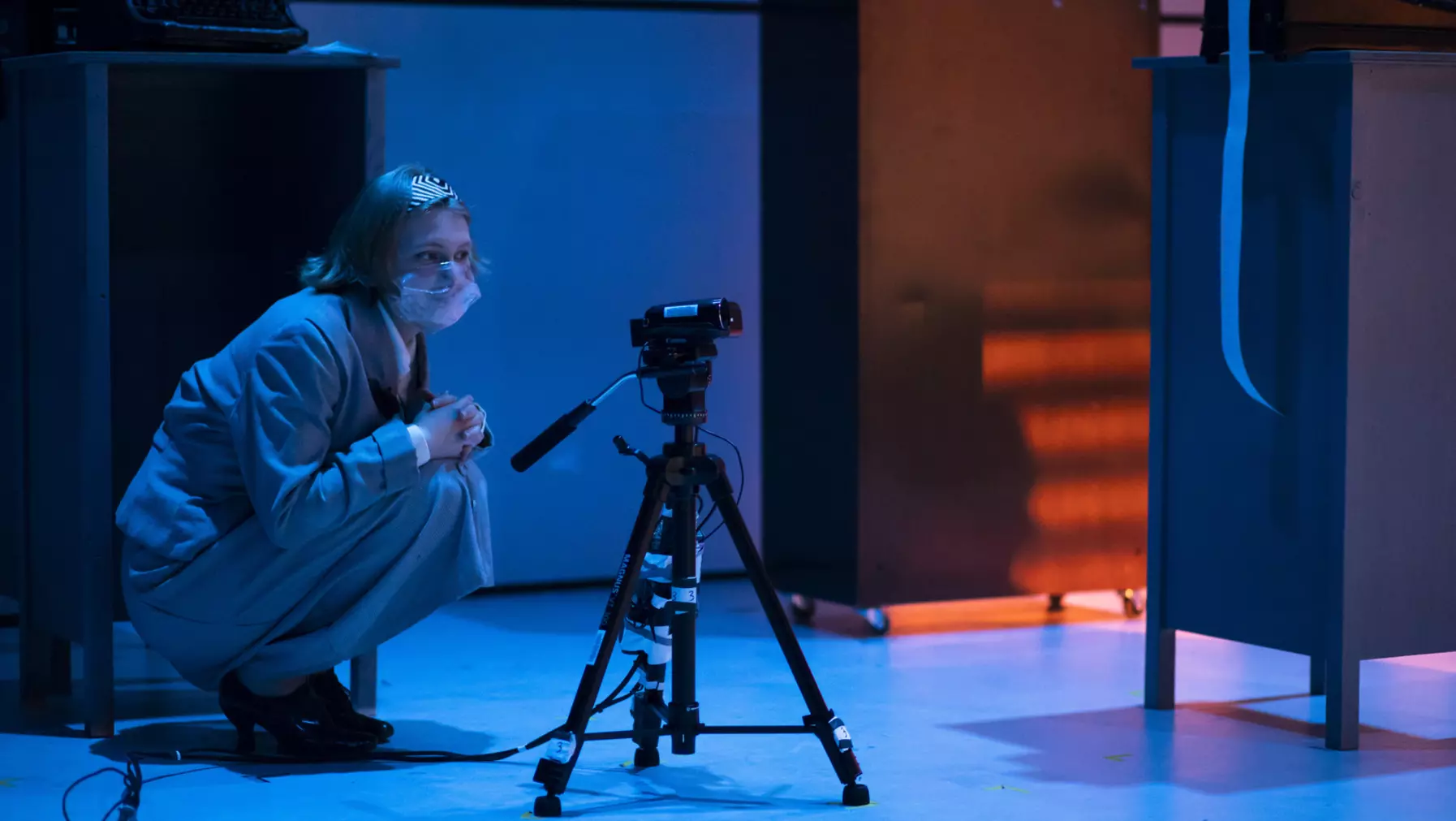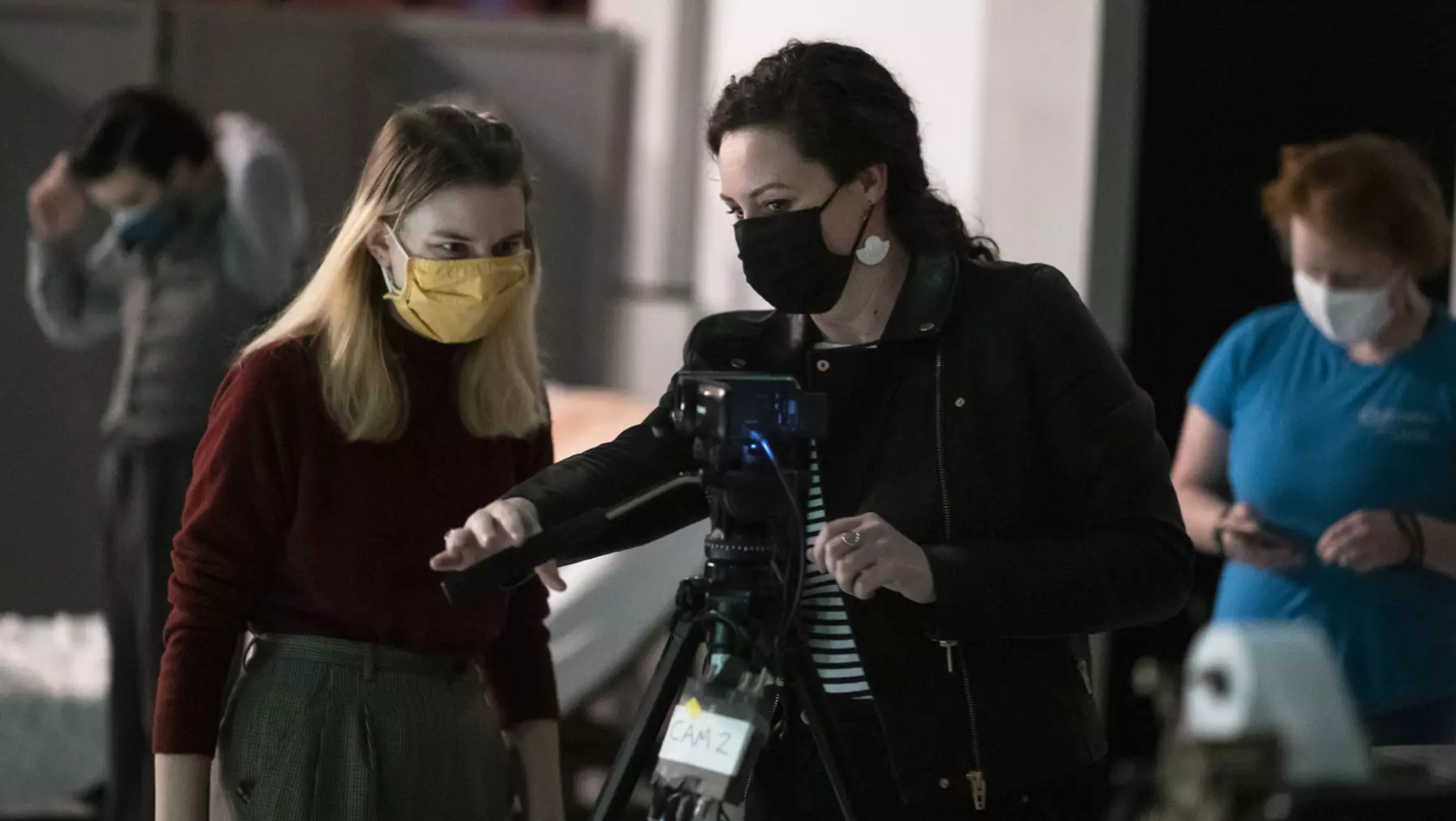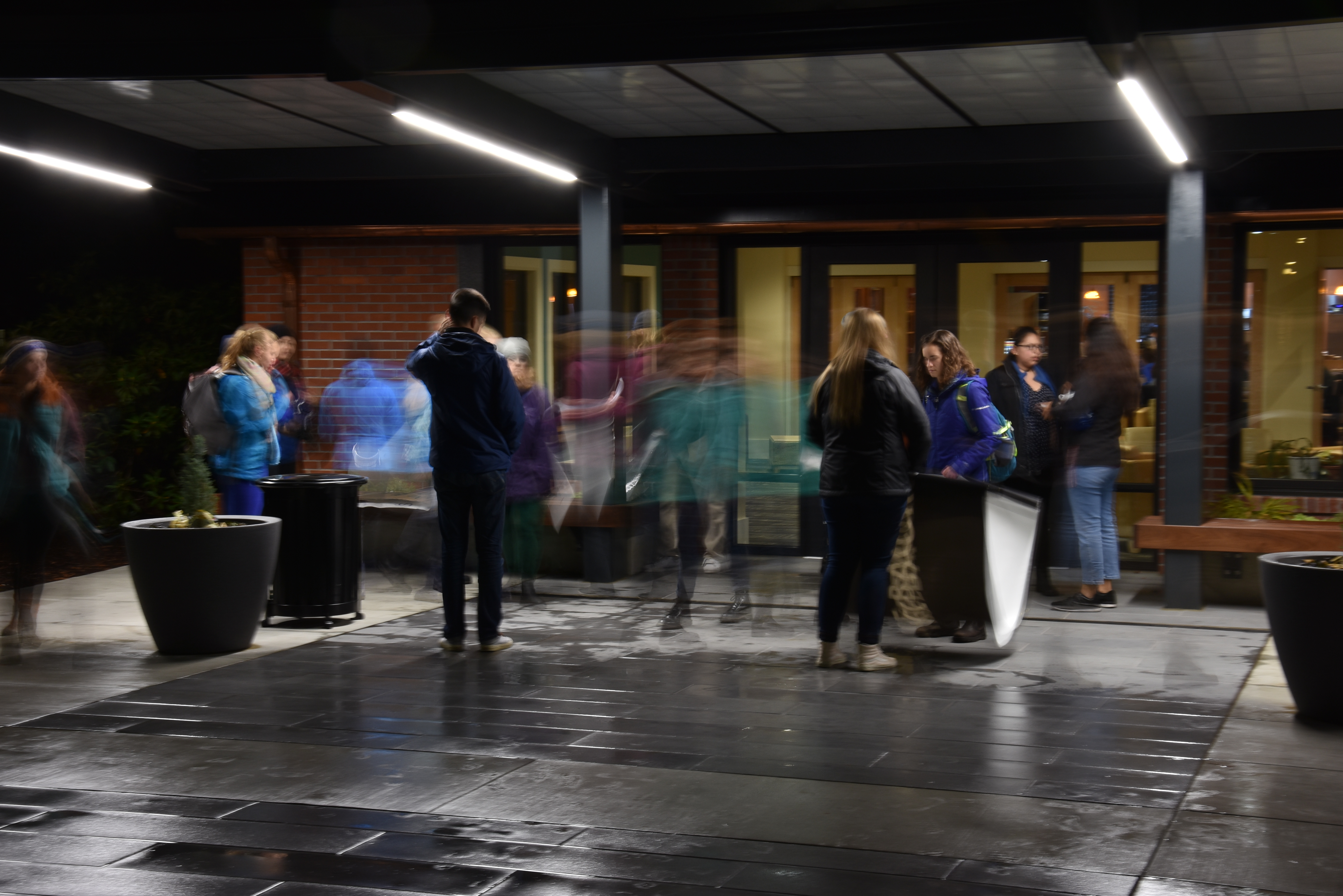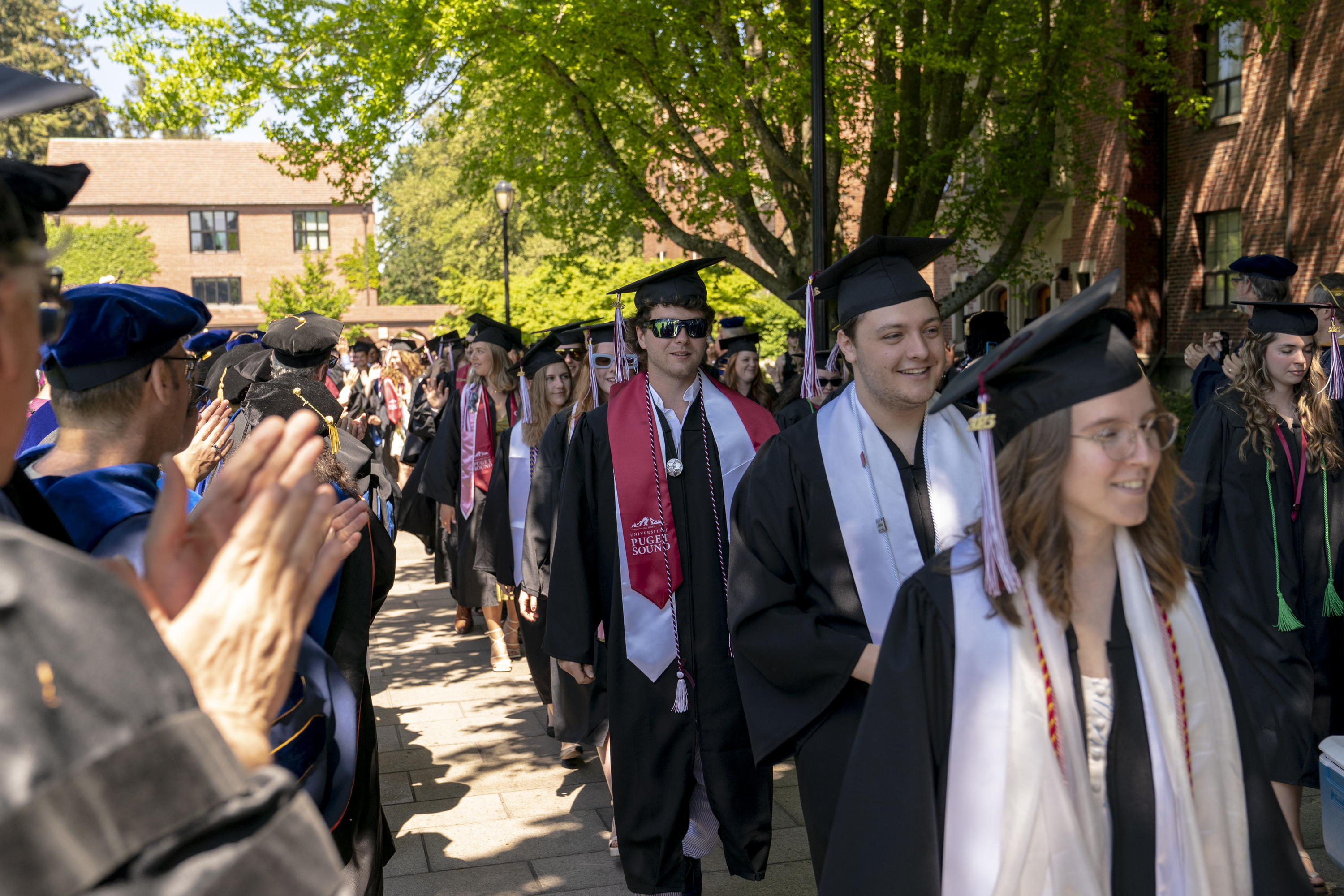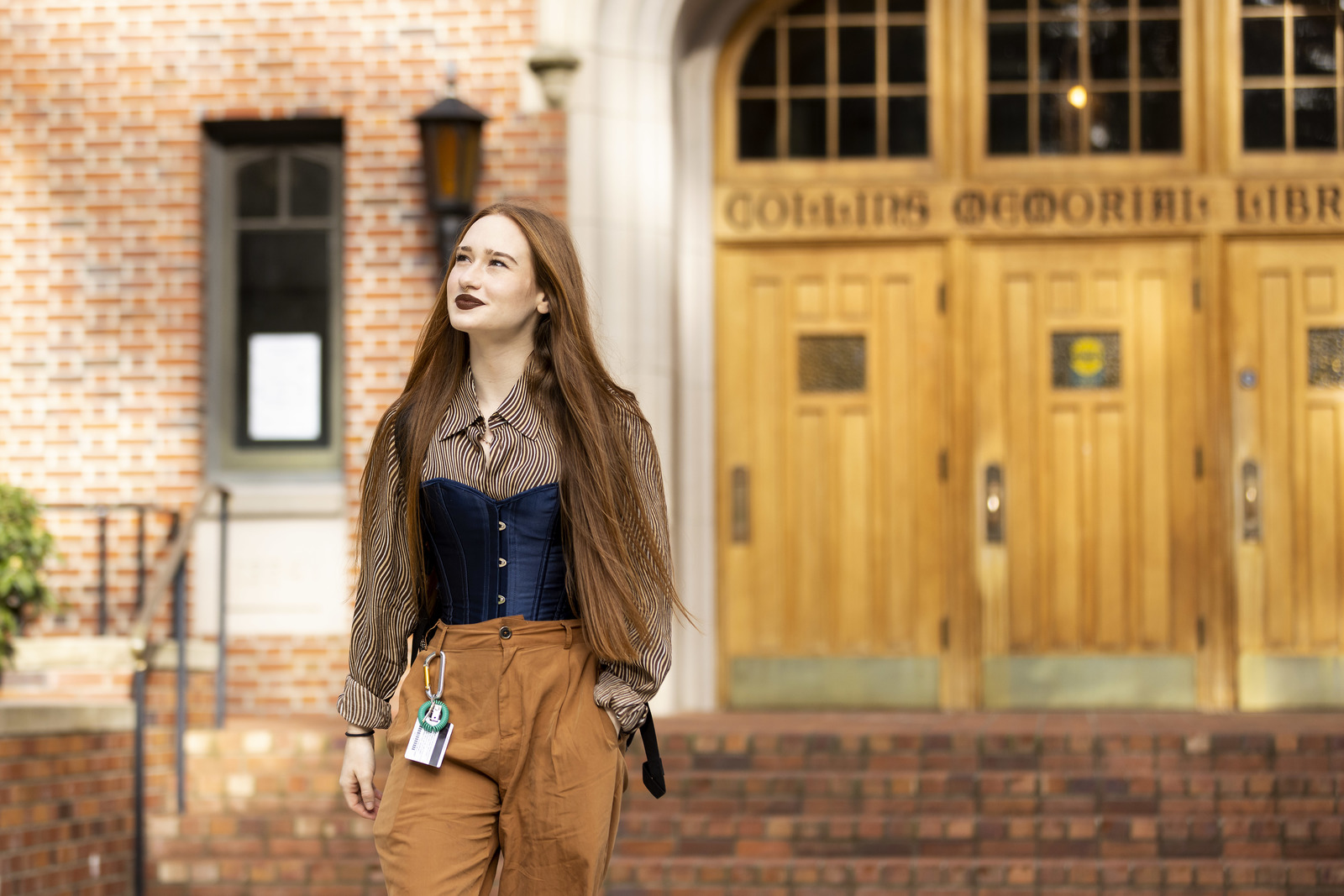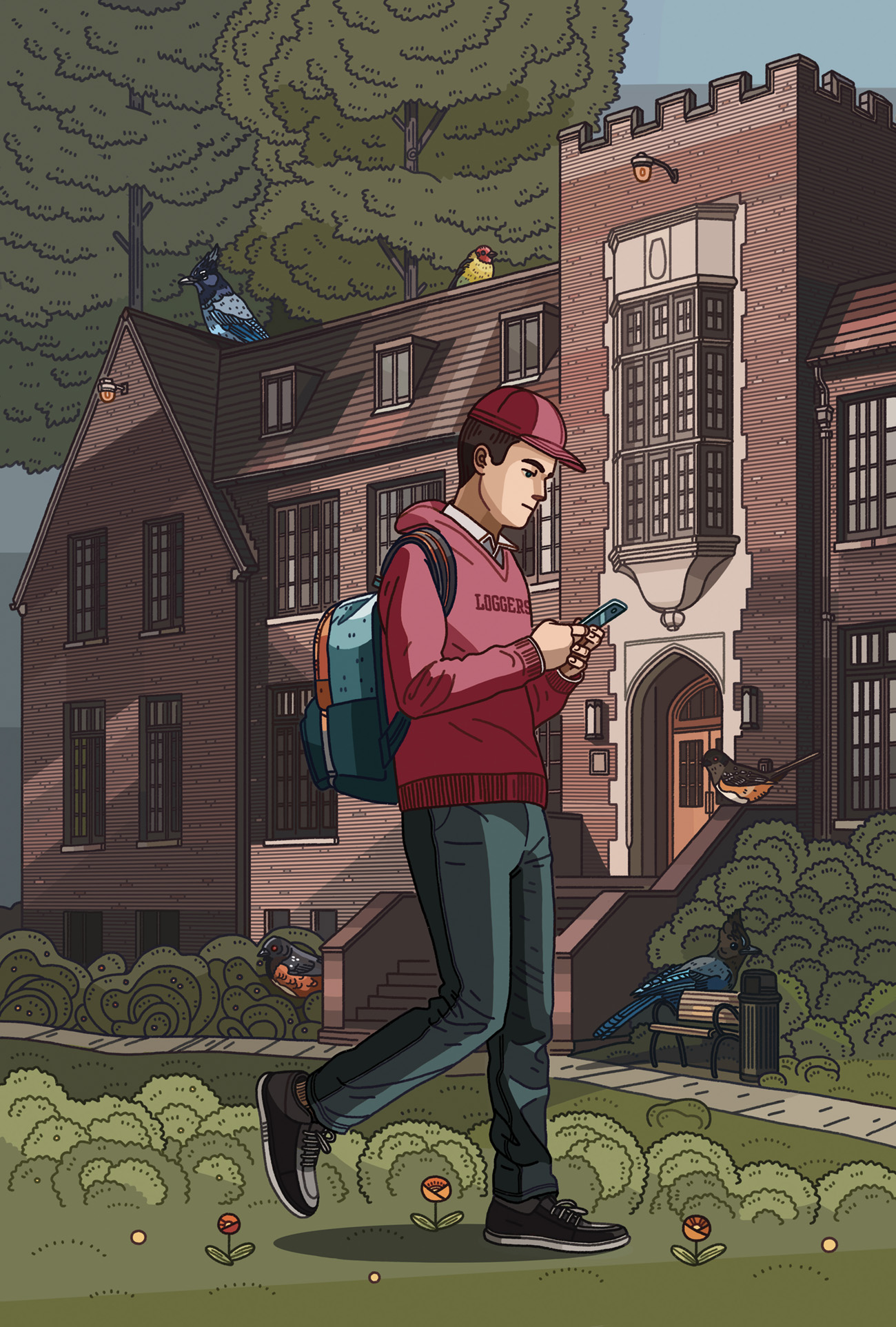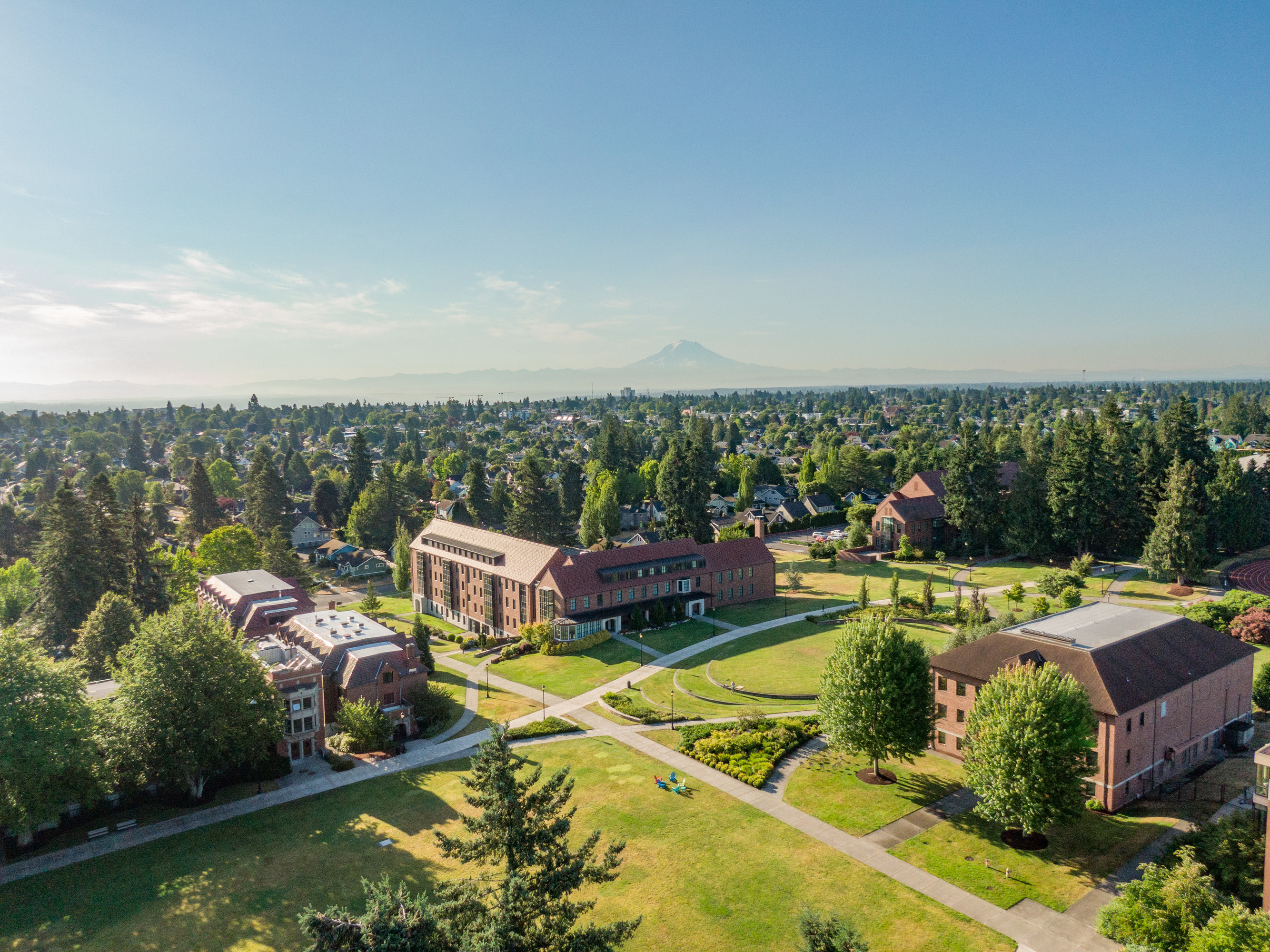Smith believes that the core issues raised in Machinal always will be timeless, especially for college students, who are often under a lot of pressure to conform to preconceived notions of happiness and personal success.
“There are always people who are made to feel like they do not belong and that they are interrupting the machine,” said Smith. “This show deals a lot with the weight of expectations. The young woman in this show experiences quite a bit of anxiety, which I think many of our students can relate to.”
Lauren VonEschen ’21 played the protagonist and instantly connected with her character’s predicament when she read the script. Despite the role’s physical and emotional demands, VonEschen was excited to return to live performance and embody a character whose isolation parallels her own experience of life in the midst of a global health crisis.
“The young woman is literally and physically trapped, and reading for the part reminded me of how we’ve all felt trapped this past year,” VonEschen said.
Puget Sound’s unique production of Machinal also allowed Smith to cast Alex Miller ’22 as part of the ensemble, despite the fact that Miller lives 1,000 miles away in Los Angeles.
“I was the only actor not in Tacoma. For the first week of rehearsals in the theater, they had me on Zoom on a TV screen, and it was a lot of hand gesturing and texting and FaceTiming to get on the same page,” Miller said. “But once we got our groove, it was so seamless; it almost felt like I was there.”
